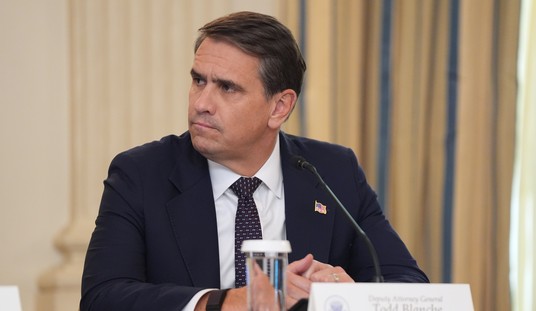It has become conventional wisdom that despite all the myriad obstacles blocking an agreement between Israel and the Palestinians, the Israeli public continues to support a two-state solution as the only realistic resolution to the conflict. But at the same time, a recent poll suggests that support for the current Israeli government is actually increasing despite its refusal to renew a construction freeze within the West Bank settlements. Such obduracy seems incompatible with the pursuit of a land-for-peace deal and so the Israeli public’s ongoing support for the government appears contradictory; Israelis can either be for this obstructionist government or for the two-state solution, but not both.
The resolution of this apparent incongruity lies in the events of 2006. A recent study published by the Institute for National Security Studies (INSS) at Tel Aviv University shows that in that year, more than 60 percent of Israelis supported the establishment of a Palestinian state, a high point in Israeli public support for the two-state solution. This high tide of support came whilst the country was still flush with the “success” of the disengagement from Gaza and when Ehud Olmert’s plan to repeat the gambit and withdraw unilaterally from the West Bank seemed like it would bring the conflict to an end.
But in 2006, three blows were struck to this flight of fancy which have profoundly influenced the attitude of the Israeli public ever since. The first strike, following the disengagement from Gaza in August 2005, was the electoral victory of Hamas in the Palestinian parliamentary elections of January 2006.
The creation by Hamas of a terrorist statelet in Gaza following the Israeli withdrawal; the dramatic increase in rocket fire against Israeli citizens in the south; and the abduction of Gilad Shalit in June of 2006 were the cumulative second blow.
And the knockout punch was the ambush and abduction of Israeli soldiers by Hezbollah on the Israel-Lebanon border in July of that year, sparking off the Second Lebanon War and the subsequent bombardment of northern Israel with over 4,000 artillery rockets in one month.
For the Israeli public, the inevitable conclusion of this wave of violence and aggression directed at them was that territorial concessions were fatal. The withdrawal from Gaza led to the subjection of nearly one million Israeli citizens to daily bombardment by Palestinian militias. And the unilateral withdrawal from Lebanon carried out in 2000 ultimately exposed Israeli citizens in the north to a similar danger.
Accordingly, public support in Israel for the land-for-peace formula and the establishment of a Palestinian state plummeted. The INSS study shows that from 62 percent in 2006 it has fallen off to barely fifty percent today. For Israelis, no other conclusion could be drawn from these events other than the simple formula that concessions and territorial withdrawals equaled not peace but war.
Support for the notion of “two states for two peoples” remains high, at over 60 percent because Israelis acknowledge that ultimately, continued rule over the Palestinians is untenable. But there is no desire at the moment to rush into an irreversible agreement which could result with the shelling not of Sderot or Haifa but of Tel Aviv.
The recent breakdown in negotiations is nevertheless a setback and the Israeli refusal to renew the construction freeze in the settlements does seem to demonstrate bad faith on Israel’s behalf — but only if one disregards the previous 10-month settlement freeze which was totally ignored by the Palestinians and the international community. Instead of pressuring the Palestinian leadership to enter into direct negotiations at the beginning of the freeze, pressure was perversely applied to Israel to extend the moratorium just as it was running out.
The refusal to talk during the settlement freeze illustrates the pattern of rejectionism and maximalist demands which the Palestinian leadership constantly pursues in order to duck negotiations and compromise. Last year, Palestinian negotiators were not willing to accept Israeli construction in Jewish neighborhoods in east Jerusalem, despite the fact that they will never be part of a Palestinian state. Last week we learned that the senior Palestinian leadership is not willing to compromise on the right of return for Palestinian refugees. And critically, in 2008 Abbas was not willing to accept the comprehensive and far-reaching deal offered him by former Prime Minister Ehud Olmert .
Because of this continual obstructionism, the polls reveal that Israelis simply don’t believe that a deal is possible with the Palestinians because of the nature of their demands. The maximum that Israelis are ready to give up ostensibly does not reach the minimum the Palestinians are prepared to accept.
Despite all this, the international community continues to enable Palestinian rejectionism, whether it is Argentina, Brazil, and Uruguay who all unilaterally recognized a Palestinian state this month, or the EU which threatened to do likewise. These developments and the ongoing failure to bring the Palestinians back to the negotiating table risk perpetuating the conflict for a generation. A poll conducted in October this year showed that 58 percent of the Palestinian population see a state in the West Bank and Gaza as merely a stepping-stone to a Palestinian state on the entire territory between the Mediterranean and the Jordan River. If the Palestinians are permitted to establish a state unilaterally, it will permanently absolve them of any requirement to accept an end-of-claims agreement and thereby justify for perpetuity further demands for territory and other perceived rights.
It is not impossible to revive Israeli confidence in a peace deal but the international community will have to be a great deal more resolute than it has been up till now. Israel must be convinced that Iran will not be able to set up a guerrilla army in the West Bank, and that should Israel need to defend itself, it will not be pilloried by the world for doing so. And the Palestinian leadership must be dissuaded from the notion that they can establish a state unilaterally, without compromising and without accepting an end-of-claims agreement. If this is achieved then the Israeli public may well come back around to the more whole-hearted support for a political resolution that was witnessed before 2006. If not, the conflict will simply endure.









Join the conversation as a VIP Member